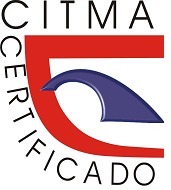La minería de datos en apoyo a la toma de decisiones clínicas
Palabras clave:
minería de datos, ; modelos de predicción, sistemas de información clínicaResumen
Las técnicas de minería de datos constituyen una herramienta a tener presente cuando se realice un
análisis predictivo. En el área de la medicina clínica se aplican estas técnicas de minería de datos
predictivas para apoyar la toma de decisiones de los médicos en el diagnóstico de enfermedades,
para el pronóstico de supervivencia de los pacientes y para sugerir tratamientos. Los autores de
este trabajo se plantearon como objetivo realizar una revisión de la literatura para identificar las
tendencias en el tema, las técnicas más precisas en la tarea de predicción y su aplicación en la
medicina clínica. Para dar cumplimiento al objetivo propuesto se aplicó un método de revisión
sistemática de la literatura (SLR, del inglés). Al culminar el trabajo se identificaron tres criterios
importantes para elegir un modelo efectivo en el análisis predictivo utilizando datos clínicos: la
representación del problema, el poder explicativo de su salida y la capacidad de adicionar
conocimiento previo de los expertos del dominio.
Citas
AbuKhousa, E., & Campbell, P. (2012). Predictive data mining to support clinical decisions: An overview of heart disease prediction systems. 2012 International Conference on Innovations in Information Technology (IIT), 267-272. Obtenido de https://doi.org/10.1109/INNOVATIONS.2012.6207745
Afeni, B. O., Aruleba, T. I., & Oloyede, I. A. (2017). Hypertension Prediction System Using Naive Bayes Classifier. Journal of Advances in Mathematics and Computer Science, 1-11. Obtenido de https://doi.org/10.9734/JAMCS/2017/35610
Bielza, C., & Larrañaga, P. (2014). Discrete Bayesian Network Classifiers: A Survey. ACM Computing Surveys, 47(1), 5:1-5:43. Obtenido de https://doi.org/10.1145/2576868
Biran, O., & Cotton, C. (2017). Explanation and justification in machine learning: A survey.
IJCAI-17 workshop on explainable AI (XAI), 8(1), 8-13.
Blobel, B. (2017). Knowledge representation and knowledge management as basis for decision support systems. Int J Biomed Healthc, 5, 13-20.
Danjuma, K., & Osofisan, A. O. (2015). Evaluation of predictive data mining algorithms in erythemato-squamous disease diagnosis. arXiv preprint arXiv:1501.00607.
Duda, R. O., & Shortliffe, E. H. (1983). Expert systems research. Science, 220(4594), 261-268. Dutta, P. (2017). Decision Making in Medical Diagnosis via Distance Measures on Interval
Valued Fuzzy Sets. International Journal of System Dynamics Applications (IJSDA), 6(4), 63-83. Obtenido de https://doi.org/10.4018/IJSDA.2017100104
Gupta, S., Kumar, D., & Sharma, A. (2011). Data mining classification techniques applied for breast cancer diagnosis and prognosis. Indian Journal of Computer Science and Engineering (IJCSE), 2(2), 188-195.
Hale, A. T., Stonko, D. P., Lim, J., Guillamondegui, O. D., Shannon, C. N., & Patel, M. B. (2018). Using an artificial neural network to predict traumatic brain injury. Journal of Neurosurgery: Pediatrics, 23(2), 219-226. Obtenido de https://doi.org/10.3171/2018.8.PEDS18370
Han, J., Kamber, M., & Pei, J. (2011). Data Mining: Concepts and Techniques. Techniques (3rd ed), Morgan Kauffman, 705. https://doi.org/10.1016/C2009-0-61819-5
Hsieh, M.-H., Hsieh, M.-J., Chen, C.-M., Hsieh, C.-C., Chao, C.-M., & Lai, C.-C. (2018). An
Artificial Neural Network Model for Predicting Successful Extubation in Intensive Care Units. Journal of Clinical Medicine, 7(9), 240. Obtenido de https://doi.org/10.3390/jcm7090240
Hurria, A., Mohile, S., Gajra, A., Klepin, H., Muss, H., Chapman, A., Feng, T., Smith, D., Sun,
C.-L., De Glas, N., Cohen, H. J., Katheria, V., Doan, C., Zavala, L., Levi, A., Akiba, C., & Tew, W. P. (2016). Validation of a Prediction Tool for Chemotherapy Toxicity in Older Adults With Cancer. Journal of Clinical Oncology, 34(20), 2366-2371. Obtenido de https://doi.org/10.1200/JCO.2015.65.4327
Iavindrasana, J., Cohen, G., Depeursinge, A., Müller, H., Meyer, R., & Geissbuhler, A. (2009).
Clinical data mining: A review. Yearbook of medical informatics, 18(01), 121-133.
James, G., Witten, D., Hastie, T., & Tibshirani, R. (2013). An Introduction to Statistical Learning. Springer.
Krypotos, A.-M., Blanken, T. F., Arnaudova, I., Matzke, D., & Beckers, T. (2017). A Primer on Bayesian Analysis for Experimental Psychopathologists. Journal of Experimental Psychopathology, 8(2), 140-157. Obtenido de https://doi.org/10.5127/jep.057316
Mishra, M., & Srivastava, M. (2014). A view of Artificial Neural Network. 2014 International Conference on Advances in Engineering Technology Research (ICAETR - 2014), 1-3. https://doi.org/10.1109/ICAETR.2014.7012785
Momenyan, S., Baghestani, A. R., Momenyan, N., Naseri, P., & Akbari, M. E. (2018). Survival prediction of patients with breast cancer: Comparisons of decision tree and logistic regression analysis. International Journal of Cancer Management, In Press.
Phakhounthong, K., Chaovalit, P., Jittamala, P., Blacksell, S. D., Carter, M. J., Turner, P., Chheng, K., Sona, S., Kumar, V., Day, N. P. J., White, L. J., & Pan-ngum, W. (2018). Predicting the severity of dengue fever in children on admission based on clinical features and laboratory indicators: Application of classification tree analysis. BMC Pediatrics, 18(1), 109. https://doi.org/10.1186/s12887-018-1078-y
Pourhoseingholi, M. A., Kheirian, S., & Zali, M. R. (2017). Comparison of Basic and Ensemble Data Mining Methods in Predicting 5-Year Survival of Colorectal Cancer Patients. Acta Informatica Medica, 25(4), 254.
Rabbi, M., Hane Aung, M., & Choudhury, T. (2017). Towards Health Recommendation Systems: An Approach for Providing Automated Personalized Health Feedback from Mobile Data. En J. M. Rehg, S. A. Murphy, & S. Kumar (Eds.), Mobile Health: Sensors, Analytic Methods, and Applications (pp. 519-542). Springer International Publishing. https://doi.org/10.1007/978-3-319-51394-2_26
Saranya, P., & Satheeskumar, B. (2016). A Survey on Feature Selection of Cancer Disease Using Data Mining Techniques. International Journal of Computer Science and Mobile Computing, 5(5), 713-719.
Singh, S., & Gupta, P. (2014, julio). Comparative Study ID3, Cart and C4.5 Decision Tree Algorithm: A Survey. International Journal of Advanced Information Science and Technology (IJAIST), 27(27).
Torres-Carrión, P. V., González-González, C. S., Aciar, S., & Rodríguez-Morales, G. (2018).
Methodology for systematic literature review applied to engineering and education. 2018 IEEE Global Engineering Education Conference (EDUCON), 1364-1373. https://doi.org/10.1109/EDUCON.2018.8363388
Wang, H., Zheng, B., Yoon, S. W., & Ko, H. S. (2018). A support vector machine-based ensemble algorithm for breast cancer diagnosis. European Journal of Operational Research, 267(2), 687-699. https://doi.org/10.1016/j.ejor.2017.12.001
Witten, I. H., Frank, E., Hall, M. A., & Pal, C. J. (2017). Data Mining. Practical Machine Learning Tools and Techniques (4th ed.). Morgan Kaufmann.
Xiao, Y., & Watson, M. (2017). Guidance on Conducting a Systematic Literature Review.
Journal of Planning Education and Research, 0739456X17723971. https://doi.org/10.1177/0739456x17723971
Yang, F.-J. (2018). An Implementation of Naive Bayes Classifier. 2018 International Conference on Computational Science and Computational Intelligence (CSCI), 301-306. https://doi.org/10.1109/CSCI46756.2018.00065
Ye, N. (2014). Data Mining. Theories, Algorithms, and Examples. CRC Press.
Zhang, Y., Guo, S.-L., Han, L.-N., & Li, T.-L. (2016). Application and Exploration of Big Data Mining in Clinical Medicine. Chinese Medical Journal, 129(6), 731-738. https://doi.org/10.4103/0366-6999.178019
Zhang, Z. (2016). Introduction to machine learning: K-nearest neighbors. Annals of Translational Medicine, 4(11), 218. https://doi.org/10.21037/atm.2016.03.37
Descargas
Publicado
Cómo citar
Número
Sección
Licencia
Derechos de autor 2022 Yidier Romero Zaldivar, José Felipe Ramírez Pérez, Lissette Soto Pelegrín

Esta obra está bajo una licencia internacional Creative Commons Atribución-NoComercial 4.0.













